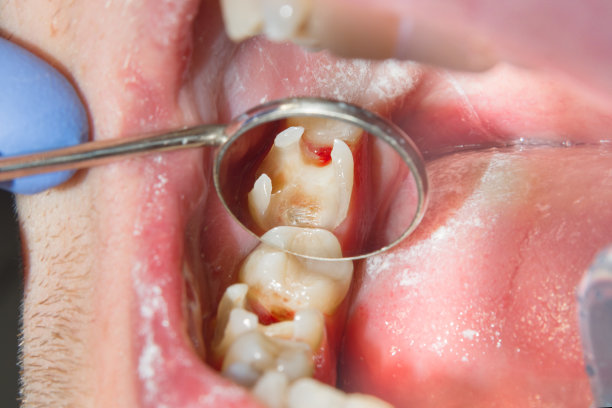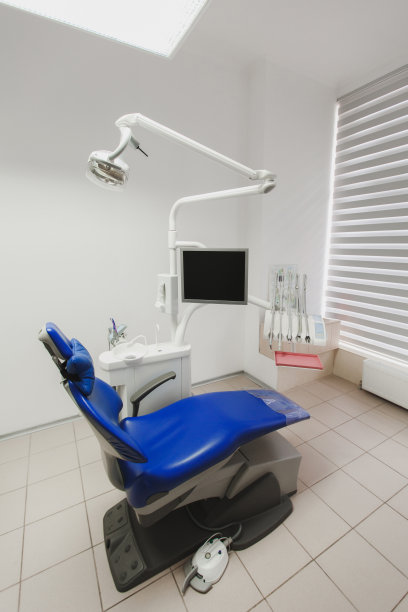Summary: Dental fillings are essential for restoring damaged teeth, but proper care post-procedure is crucial for long-lasting results. This article outlines vital guidelines and precautions to follow after your dental filling procedure, ensuring optimal healing and effectiveness. From dietary choices to oral hygiene practices, each aspect is explored to help maintain the integrity of your filling. Additionally, we discuss the importance of follow-up visits and recognizing warning signs of complications. By adhering to these essential guidelines, patients can minimize discomfort and enhance the longevity of their dental fillings.
1. Dietary Changes for Optimal Recovery

After a dental filling, one of the best immediate steps you can take is to monitor your food choices. It is advisable to avoid hard, crunchy, or sticky foods for at least 24 hours post-procedure. Foods like nuts, candies, or hard bread can put undue pressure on the recent filling, leading to possible damage or dislodgement.
Additionally, opting for softer foods can ease discomfort and promote healing. Foods such as yogurt, mashed potatoes, and soups can be easier to consume while your mouth adjusts to the filling. Hot foods and drinks should also be associated with caution, as they could increase sensitivity around the newly filled area.
Finally, remember to stay hydrated. Drinking plenty of water promotes healing and helps wash away food particles, reducing the risk of infection. However, it is better to avoid drinking through a straw, which can create suction that might pull on the filling.
2. Maintaining Oral Hygiene Practices
After receiving a dental filling, maintaining proper oral hygiene is vital. Begin brushing your teeth at least twice a day, but be gentle around the filled area initially. Make sure to use a soft-bristled toothbrush to avoid irritating the gums and to help keep the filling intact.
Flossing is equally crucial, but it requires extra care. Avoid using traditional dental floss near the filling for the first few days, as it might catch on the filling. Instead, consider using a waxed dental floss or a floss holder to minimize the risk of dislodging the filling.
Regular mouth rinses can also be beneficial. Use an antibacterial mouthwash to help reduce bacterial growth and keep your mouth fresh. Always consult your dentist if youre uncertain about which oral hygiene products are safe to use after your dental filling procedure.
3. Recognizing and Managing Sensitivity
It is not uncommon to experience some sensitivity after a dental filling. This might manifest as discomfort when consuming hot, cold, or sweet foods. Understanding this sensitivity can help you manage it effectively. Generally, this should subside after a few days; however, if the sensitivity persists, you should consult your dentist.
If the sensitivity is particularly bothersome, over-the-counter pain relievers can help alleviate discomfort. Be sure to adhere to the recommended dosages and consult your dentist before taking any medication, especially if you have underlying health conditions.
Additionally, keep an eye out for any unusual symptoms that might indicate a problem with the filling. This includes visible cracks, persistent pain, or an unusual taste in your mouth. Early detection of these issues can save you from more complicated treatments down the line.
4. Importance of Follow-Up Appointments
Post-procedure follow-ups are critical to ensure everything is healing correctly. Your dentist will likely schedule an appointment to check the filling, and its essential to attend this visit. During this appointment, your dentist can assess the integrity of the filling and address any concerns you might have.
Moreover, regular dental check-ups play an integral role in maintaining your oral health. During these visits, your dentist can monitor other aspects of your dental hygiene, including plaque buildup and the status of your other teeth.
If you experience severe pain or discomfort after following these guidelines, do not hesitate to contact your dentist. Prompt action can help prevent further complications and ensure that your dental filling is functioning as intended.
Summary:
In conclusion, the care you give to your teeth after a filling procedure is of utmost importance. Understanding dietary modifications, practicing good oral hygiene, managing sensitivity, and attending follow-up appointments form the foundation for optimal results. By taking these proactive measures, you can protect your dental health and ensure the success of your filling.
This article is compiled by Vickong Dental and the content is for reference only.
Vickong Dental
Vickong Dental is a large medical group established in Hong Kong in 2008 by professors from well-known medical universities in Guangdong and Hong Kong, as well as medical doctors from key national '985' universities (including Master's supervisors and senior professors). The chain of branches brings together expert dentists with PhDs and Master's degrees from Hong Kong and Mainland China, committed to providing high-quality dental treatment.
"Vickong Dental Practices the University Motto of 'Healing and Serving Society,' with a Stable Operation for Sixteen Years. It Has Been honored with Hong Kong Enterprise Leaders's Choice,' and is a Global Trusted Implant Center for the Nobel Implant System. Recommended by Hong Kong Metro Broadcast and Guangdong Television, it Serves Customers from Over Thirty Countries and Regions, Gaining the Trust and Favor of Citizens from the Guangdong-Hong Kong-Macau Greater Bay Area and Surrounding Cities.

Thousands of customers' unanimous praise
The most recognized and highly recommended dental service by customers in the Guangdong-Hong Kong-Macau Greater Bay Area
We Ensure You Receive Detailed Care and Attention Here
Hong Kong standards, Shenzhen prices, Your Trusted English-speaking dentists

Vickong Dental Medical-Grade Instrument Disinfection Process
Vickong Dental Medical-Grade Instrument Disinfection Process

Vickong Dental Chain: A Warm and Comfortable Environment for Treatment






Appointment Hours

Q&A
Why choose Vickong Dental?
Vickong Dental practices the university motto 「Medicine to Benefit Society」, with each branch bringing together highly qualified dentists with doctoral and master’s degrees from Hong Kong and the Mainland, and has maintained seventeen years of steady operation。Recipient of 「2024 Hong Kong Enterprise Leaders Brand」, 「2025 Hong Kong Enterprise Leaders Brand」, a Nobel Biocare Global Trusted Implant Center, and a brand recommended by Metro Radio Hong Kong and Guangdong TV。
To date, we have served customers from more than thirty countries and regions,earning exceptionally high word-of-mouth recognition and trusted recommendations from residents across the Guangdong-Hong Kong-Macao Greater Bay Area and surrounding cities
We have eight major branches in Zhuhai、Shenzhen,and a consultation and service assurance center in Hong Kong,so you can book a free consultation at any time for any questions,which is very reassuring.
If I do not accept the quotation after the CT scan, will I be charged??
No! As long as the actual treatment has not started, you will not be charged any fees.
Will there be any additional charges during the treatment process?
No, there won’t be any additional charges. Before treatment begins, we will clearly explain the treatment plan and its corresponding fees. Only after the patient agrees and signs the consent form will we proceed with the dental service.
Can I pay in Hong Kong dollars?
Yes. Vickong Dental accepts payment in Hong Kong dollars. The amount will be converted based on the exchange rate of the day, and the applicable rate will be clearly communicated to you in advance.
Can I reschedule my appointment at any time?
Yes. Please contact us via **WeChat** or **WhatsApp** as early as possible, providing your original appointment time and details, along with your preferred new date and time slot for rescheduling.













